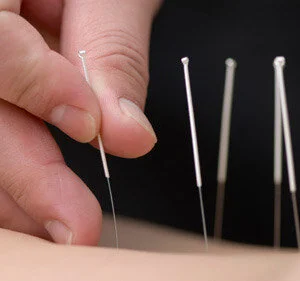In Traditional East Asian Medicine (TEAM), Autumn is associated with the Lung organ. For asthma sufferers, Fall can be a particularly difficult time, with a mix of colder weather and allergy-inducing pollen aggravating asthma symptoms. Luckily, acupuncture and TEAM herbal medicine can offer a lot of relief for asthma sufferers!
Read moreRed Wine, Chocolate, and Coffee: When Is A Good Thing NOT A Good Thing? (Part Two)
Red wine, dark chocolate, and coffee are favorites for many of us, and a number of studies have shown them to have some good effects for your health. Are they always good for you? What does Chinese Medicine say about these three decadences-turned-health foods?
Read moreAcupuncture May Help Ease Symptoms Of COPD
Acupuncture has previously been shown to reduce breathlessness in patients with cancer, and now we can add COPD to the list! In a very exciting development in the world of research on acupuncture, a small-but-promising study published last week in the Archives of Internal Medicine found that acupuncture holds benefit for people with Chronic Pulmonary Obstructive Disease.
Read moreTic-Toc, The Body's Clock Is Important For Your Health
It's been said that timing is everything, and that may be particularly true when it comes to the body's ability to fight off disease. Chinese and Western medicines both have a concept of a "body clock" with cycles of internal timing and regulation. New research published in the February issue of the journal Immunity shows that the success of our immune defense depends in part on our "body clock."
Read moreAcupuncture Reduces Protein Linked To Stress
Acupuncture reduces protein linked to stress in first of its kind animal study.
More news on the possible mechanisms of acupuncture! A researcher at Georgetown University Medical Center has found molecular evidence of acupuncture's ability to reduce stress by lowering the blood levels of a protein called neuropeptide Y. This protein is secreted by the sympathetic nervous system during stressful periods and constricts blood flow to many parts of the body. Although this is a preliminary animal study, it follows that by reducing this protein, acupuncture can help return blood flow to the extremities and digestive organs so people may feel less pain and more relaxed overall. This experiment will need to be replicated in humans before we can say for sure, but this finding may prove to be one more piece of the mechanism puzzle!
Good Vibrations
How does acupuncture work? Yes, acupuncture needles manipulate qi flowing in meridians to balance the body, but what does that mean in our modern physiological understanding of the body? This is a question that the scientific community has not been able to answer definitively. There are a number of people researching various aspects of the question. Previously on this blog, I hypothesized that the concept of Qi is really a metaphor for the chemical and electrical processes in the body. If you've ever wondered how acupuncture works, you're not alone.
Well, an important study was published in July by the Europoean Journal of Physiology which reports on that very topic. The study, performed by electrical engineers at Columbia and medical researchers in Hong Kong, examined what happens on a cellular level when an acupuncture needle is inserted into an acupuncture point. They found that when bodily tissue is pierced by a needle while being manipulated, slow-moving acoustic waves are sent into the muscles. These waves then trigger inter-cellular calcium flow. Calcium then interacts with white blood cells to produce endorphins that help alleviate symptoms such as pain and nausea.
The study also determined that the effectiveness of acupuncture depends on how accurately the needle hits the acupuncture point. The acoustic waves generated by acupuncture can travel between six and eight centimeters along the grain of pierced muscle only when the needle is inserted on an acu-point. Needles inserted into places that were not acu-points also sent acoustic waves, but the waves did not travel as far or as widely.
As with all science, since this is the first study to research this aspect of acupuncture's mechanism, we'll need to see what further research uncovers. However, these findings appear to be an important development!




